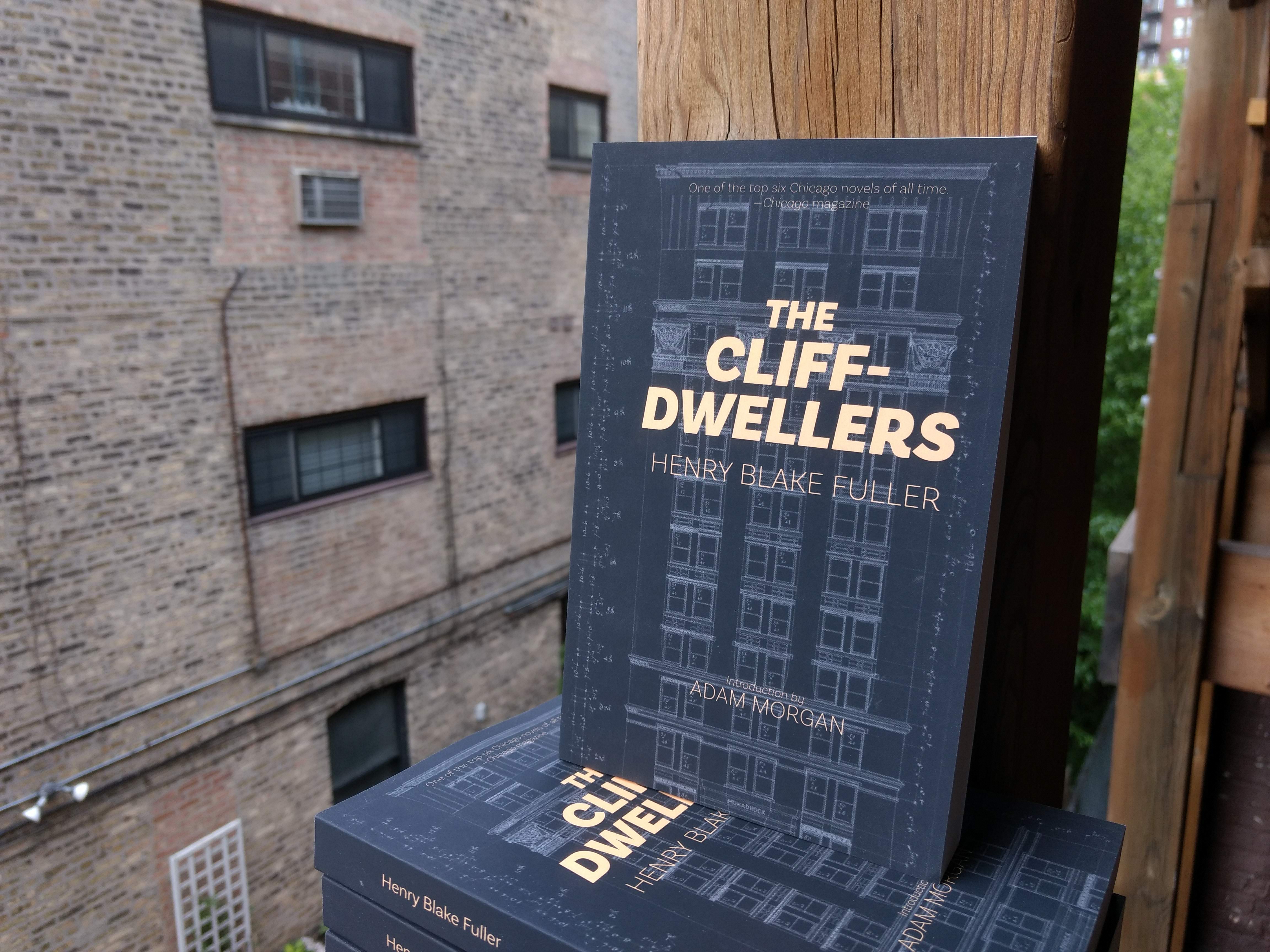Why start a small press for classic literature in the digital age? If you’re Adam Morgan, editor-in-chief of the Chicago Review of Books (and frequent Chicago mag contributor), it's because you love it.
The Chicago Review of Books Press, a new small imprint dedicated to reviving the city's forgotten classics, releases its first title, Henry Blake Fuller’s The Cliff-Dwellers, at Printers Row Literary Festival this weekend. Physical copies ($12) go on sale June 9 at both the festival and at the Dial Bookshop (410 S. Michigan Ave.), with copies available online starting June 11.
Pressed on the impetus for starting an old press dedicated to Chicago classics, Morgan puts it plainly: “It’s really because I read a lot of old stuff.”
Still, when your passion project involves hand-typing old novels word for word from PDF documents—Morgan and his team's chore for two months earlier this year—there's a little more at work than love. In truth, republishing classic literature is an important part of the Chicago Review’s mission.
“Chicago Review of Books does a really good job of illuminating the present day literary scene in Chicago,” Morgan says. “Starting a small press that specializes in old and awesome out-of-print—or at least very hard to find—books about Chicago seemed like a great way to spotlight the city's literary history.”
The press will begin by publishing a limited run of 300 copies of The Cliff-Dwellers, the 1893 novel that helped put Chicago on the literary map in its time. A realist satire, the novel documents Chicago's nascent business world from inside one of its shiny new skyscrapers.
“At the time, at least," says Morgan, “they were called skyscrapers. We wouldn't call them that now because they’re shorter than most of the buildings in town.”
In that distinction lies the value Morgan sees in publishing a forgotten Victorian novel: it shows a Chicago that is both unrecognizable and the foundation of the city we now know.
Though not considered a classic today, Fuller’s novel was hugely popular when it was released, chapter by chapter, in Harper’s Weekly.
“Most people hadn't encountered a skyscraper before because they were so new at the time,” Morgan says. “A lot of it probably would have read like science fiction for people.”
When The Cliff-Dwellers was published, Chicago was already in the news for the World’s Columbian Exhibition, which took place during the same summer as Fuller’s serialized rollout. Introducing the world to skyscrapers solidified the city’s explosion into the collective imaginary.
Fuller has also recently been rediscovered and celebrated as one of the nation’s first gay writers. Some years after publishing The Cliff-Dwellers, he wrote Bertram Cope’s Year, a story of a professor at a thinly-veiled Northwestern University who attracts the affections of a crop of suitors, both male and female. It didn't earn the accolades Fuller had hoped for in his lifetime, but the book's republication two decades ago by Turtle Point Press garnered a slew of favorable reviews. In 2000, Fuller was posthumously admitted to the Chicago LGBT Hall of Fame.
The Cliff-Dwellers, then, is a multifaceted classic for the Chicago Review to jump off with: solidly in the canon, but forgotten; penned by a pioneering gay writer, but regressive. “It’s written by this white guy at the end of the Victorian era so it’s definitely problematic in places,” Morgan says of the book's depiction of women, immigrants, and non-white characters. “If I was reviewing it for a contemporary publication it would get a very mixed review from me.”
Morgan says Chicagoans are welcomed into engaging with the book's uglier elements—and determining where that legacy can still be found today. Going forward, though, Morgan wants to branch out from those old, dead, white guys. Some possible future titles include Willard Motley’s Knock On Any Door and Gwendolyn Brooks’ Maud Martha.
“I would love for the next book to be by a woman," Morgan says. "The problem is, the literary nerds have been a lot better at preserving and digitizing works by men.”
Still, he's confident the press can help make Chicago’s literary scene more inclusive by bringing the city’s history out of the shadows. It’s a good time to start, too. According to Morgan, our city is at the peak of its fourth great literary renaissance.
“The first wave was kicked off by Henry Blake Fuller, and now we’re starting to crest the fourth wave right now, especially with all these poets and young people getting published and getting national attention,” he says. “Other than the 1910s, I don’t think there’s ever been a better time to be a writer living in Chicago.”



